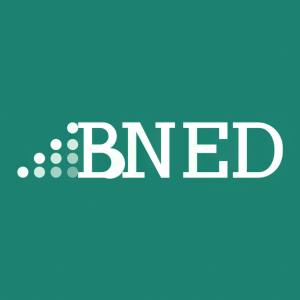Barnes & Noble Education Unveils COLLEGE 2030, A New Report Offering an Exclusive Outlook Into the Future of Higher Education
Barnes & Noble Education (NYSE: BNED) released its research report, COLLEGE 2030™: Transforming the Student Experience, detailing insights from students, faculty, and administrators about the future of higher education. The report emphasizes the increased need for flexible and personalized learning options, with 69% of students highlighting flexibility in class attendance. Additionally, it addresses affordability concerns, with 94% of students believing online classes should be cheaper. The findings suggest collaboration among students, faculty, and institutions is essential for developing a more effective educational framework.
- 69% of students emphasize the need for flexibility in attending classes.
- 84% of students prioritize access to career development services for success.
- The report highlights the importance of personalized learning experiences.
- Increased focus on micro-credentialing and lifelong learning options.
- 94% of students think online classes should be less expensive, contrasting with only 41% of faculty and 43% of administrators agreeing.
Insights
Analyzing...
Barnes & Noble Education, Inc. (NYSE: BNED), a leading solutions provider for the education industry, today announced findings from its latest research report, COLLEGE 2030™: Transforming the Student Experience. Featuring insights from college students, faculty members and campus administrators, the report provides a comprehensive view of the current state of higher education and an exclusive outlook on the decade ahead.
“The pandemic did not change the path for higher education, but it did change the speed at which we’re traveling on that path,” said Michael P. Huseby, CEO and Chairman, BNED. “Within the next 10 years, we will see a transformation of the student experience – from admissions through graduation – that will ultimately create a better, more inclusive and smarter world.”
The Rise of Flexible, Personalized Learning
The pandemic has prompted colleges and universities to revisit traditional methods of teaching and engaging students. And though the abrupt, nationwide switch to online and hybrid learning presented many challenges, it also served to emphasize that students do not all learn in the same way or at the same pace, and that for many, online learning can offer much-needed flexibility. As one community college student explained, “Not everyone is a traditional student with the same amount of time and resources.”
While in-person learning will always maintain its value, technology will allow the future of higher education to become more accessible, and more desirable, to students. In fact,
“Online learning can be a great tool for extending the flexibility of education, but it can also be a challenge for many students who have limited access to technology or who struggle with learning through a screen,” said Lisa Malat, President of Barnes & Noble College. “As schools continue to invest and improve their digital learning systems, we’ll see students have more flexibility in choosing the class formats that work with their schedules and preferred learning styles, opening up possibilities for students who are caregivers or in the workforce.”
Enhancing the Value of Education
While online offerings are expected to increase options for students in the near future, today, they are raising questions about the value of education. Already under scrutiny before the pandemic, tuition costs have become a source of strain between students and institutions. While about six in 10 of all respondents agreed that schools need to focus more on affordability, agreements broke down when looking at payments. While
Crossing that divide will require institutions to shift their focus and learning models to where students are most focused today – career development. A majority (
A Seamless Student Experience
As students’ academic life becomes more tailored to their personal needs, so will their lives on campus. The pandemic has highlighted just how crucial college services can be to getting a students’ education off on the right foot, but it also highlighted how disjointed the delivery of these services can be. Providing students with the practical skills that enable lifelong learning and growth – and enhance the value of education – goes well beyond the classroom. To ensure students’ success, it should be on every school’s to-do list to develop a “Community of Care” – an umbrella of seamless student support that includes faculty advisers, mental health professionals, success coaches and peer mentors, all acting in a collaborative, integrated manner to guide each student through their college (and life) experience.
“Students, above all, want to know that they’re being heard. And we’re seeing colleges and universities increasingly take that into account as they work to balance the short-term challenges of the pandemic with the long-term needs of higher education growth. No one group can determine what the future of higher education will be – it will take students, faculty and administrators working together to build the new framework for learning in the U.S.,” said Huseby.
Download the full report here.
Survey Methodology
Barnes & Noble College Insights™ conducted online quantitative surveys 1,438 college students, 323 faculty members (department heads, professors, adjuncts, instructors, and teaching assistants), and 104 administrators (presidents, vice presidents, provosts, CFOs, deans, and other academic leadership) across the U.S. in November 2020 to better understand how each group is reshaping the future of higher education following the COVID-19 pandemic and the changes it accelerated.
About Barnes & Noble Education
Barnes & Noble Education, Inc. (NYSE: BNED) is a leading solutions provider for the education industry, driving affordability, access, and achievement at hundreds of academic institutions nationwide and ensuring millions of students are equipped for success in the classroom and beyond. Through its family of brands, BNED offers campus retail services and academic solutions, a digital direct-to-student learning ecosystem, wholesale capabilities and more. BNED is a company serving all who work to elevate their lives through education, supporting students, faculty, and institutions as they make tomorrow a better, more inclusive and smarter world. For more information, visit www.bned.com.
View source version on businesswire.com: https://www.businesswire.com/news/home/20210225005581/en/







